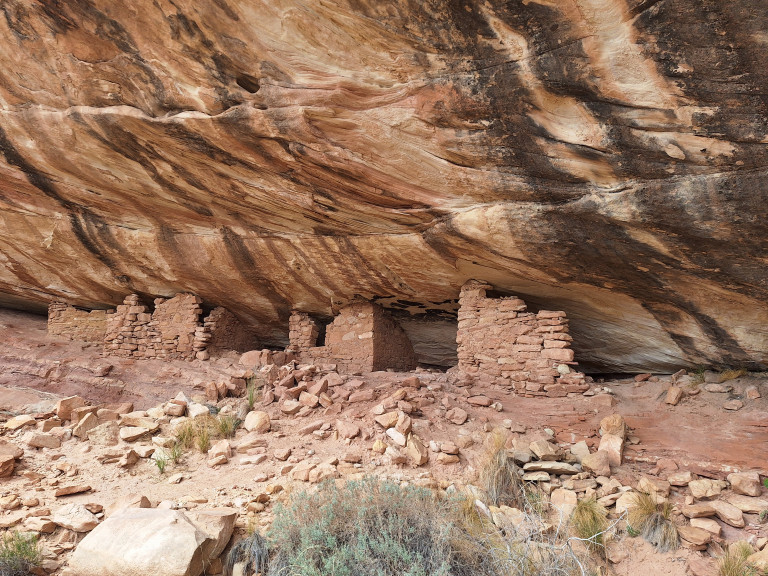Dendrochronology Intensive Summer Course (DISC) 2026
What is DISC2026?
The Dendrochronology Intensive Summer Course (DISC) is a three-week long course that is designed to provide experiential learning in all phases of tree-ring research. Participants will learn fundamental Dendrochronology concepts and be introduced to its rich interdisciplinary nature. In addition, they will hone their skills in track-specific techniques. All tracks will include a fieldwork component and cover sample collection, sample processing, data analysis and will culminate in a project presentation. Ample opportunities to network and interact with participants in other tracks, as well as Invited speakers, are an important and integral part of DISC.
DISC begins with a week-long field trip to classic tree-ring sites in the southwestern United States where participants will learn basic tree-ring sampling techniques as well as specialized sampling strategies for their selected area of focus. This year, we are offering three tracks: Dendroarchaeology, Dendroecology and Dendroclimatology. Upon returning to the University of Arizona, participants will immediately begin processing their samples and collecting tree-ring data. In conjunction with the lab portion of the course, all participants will receive instruction on fundamental concepts and practices of dendrochronology. In addition, participants will learn about current research being conducted at the Laboratory of Tree-Ring Research (LTRR) and will have the opportunity to meet and network with LTRR faculty members. There will be ample time and support provided for groups to analyze and interpret their tree-ring data. Analytic approaches will depend on the selected track – Dendroarchaeology, Dendroecology, and Dendroclimatology.
Go here to see a general syllabus for the course. During weeks 2 & 3, we meet around 8 hours/day Monday through Friday. On weekends, we sometimes organize short excursions in and around Tucson, if there is interest.
For further information about these tracks, stay tuned to this website and/or contact:
Dendroarcheology: Dr. Nick Kessler nvkessler[at]arizona.edu
Dendroecology: Dr Paul Sheppard prs[at]arizona.edu
Dendroclimatology: Dr. Kiyomi Morino kiyomi[at]arizona.edu
When is DISC2026?
This year, DISC begins on Monday May 18th and ends on Friday, June 5, 2026.
Who should attend?
All in-person tracks are open to students with some knowledge of dendrochronology, including undergraduate students, graduate students and professionals.
Registration & Fees
To register, please fill in this form. Course fees are $1200 for students and $1400 for professionals. All fees must be paid by April 3, 2026. Fees do not include room and board. If you are interested in on-campus housing options, please indicate so on the registration. NOTE: On-campus housing is limited so please register and indicate this option as early as possible.
Please contact Skye Peterson (skyebennett@email.arizona.edu) to set up payment by check or wire transfer. If you are interested in taking this course for University of Arizona credit, please send us an email at disc@ltrr.arizona.edu.
Travel Documents for Non-US Citizens
For those participants who are not Citizens of the United States, you will need appropriate travel documentation for entry into the US. Citizens from visa-waiver participating countries are able to enter with an ESTA. If your home country does not participate in ETSA, you will need a B1/B2 Travel Visa. Wait times for B1/B2 travel visas can be lengthy in some locations so it is recommend that you begin the application process for those at your earliest convenience to ensure that your travel dates are able to be met.
Housing
On-campus housing (basic dorm rooms) are $52/night for a single. Registration opens in February 2026, those interested should reserve their room directly here.
There are also many vacation rentals near the University. We are happy to assist in finding a suitable place for you.
For more information
For general inquiries, send us an email at disc@ltrr.arizona.edu or check back at this website. For track-specific questions, please contact the Lead Instructors:
Dendroarcheology: Dr. Nick Kessler nvkessler[at]arizona.edu
Dendroecology: Dr Paul Sheppard prs[at]arizona.edu
Dendroclimatology: Dr. Kiyomi Morino kiyomi[at]arizona.edu
DISC2025
Photos from the field!


